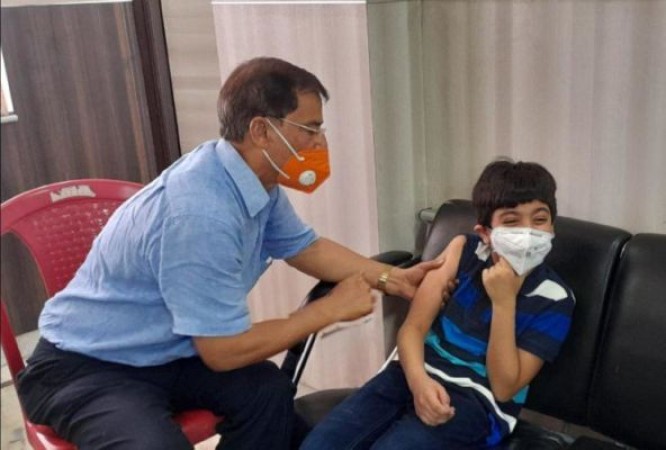
Children are likely to face less distress than adults amid the third wave of covid. This was claimed in the latest seroprevanence survey of WHO and All India Institute of Medical Science (AIIMS). The third wave is being predicted in view of the dangerous variant of Covid. However, the new study of WHO and AIIMS is going to give some relief.
According to the new Siro survey, the SARS Cov-2 'Sero Positivity' rate is higher in children than adults and therefore, it is unlikely that the current form of Covid-19 is likely to affect children aged two years and above comparatively more in the future. 'Siro-positivity' is the presence of a particular type of antibody in the blood.
Samples of 10,000 people from five states were taken: The study results came during concerns over the estimated worst impact of children and adolescents in the third wave of corona virus in the country. The interim results of the study are released in Mederxiv which is a pre-publishing server. These results are based on mid-term analysis of 4,509 partners. These included 700 children in the age group of two to 17 years while 3,809 persons in the age group of 18 or above were included. These people were taken from 5 States.
The data collection period was between March 15 and June 15. These were taken from 5 locations, including Delhi Urban Rehabilitation Colony, Delhi Gramin (village in Faridabad district under Delhi-NCR), Bhubaneswar rural area, Gorakhpur rural area and Agartala rural areas. Aiims and WHO study together These results are part of a multi-focused, population based, age-based sero presence study, which is to be conducted under WHO unity studies by all India Institute of Medical Sciences (AIIMS) Director Randeep Guleria and other experts including Professors Puneet Mishra, Shashi Kant and Sanjay K Rai of the Department for Centre of Medicine.
The study is scheduled to be conducted among the proposed population of 10,000 in five selected States. The results say, "Siro's presence is 55.7 per cent in the under-18 group and 63.5 per cent in the group above 18 years. There is no statistically significant difference in the presence between adults and children. As per the results of the study, the zero positivity rate in rural areas has come down as compared to urban areas (in Delhi). In rural areas, children were found to have relatively low sero positivity as compared to adults.
Also Read
How Peter Triantos Followed His Passion For Art At Age 47
Covaxin may get WHO's approval, pre-submission meeting on June 23
Chennai: Murder of a corona positive woman by hospital worker to steal Rs 500